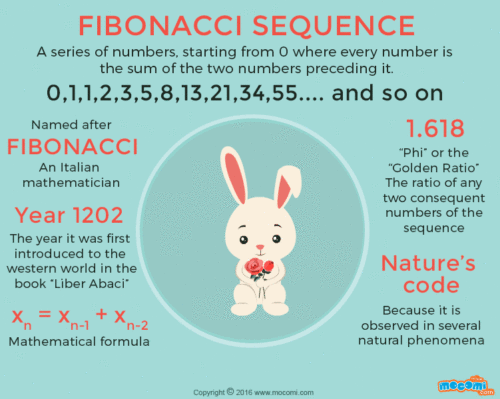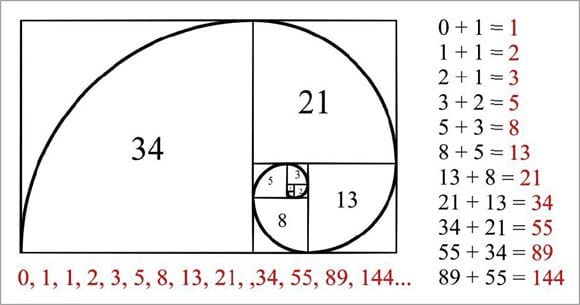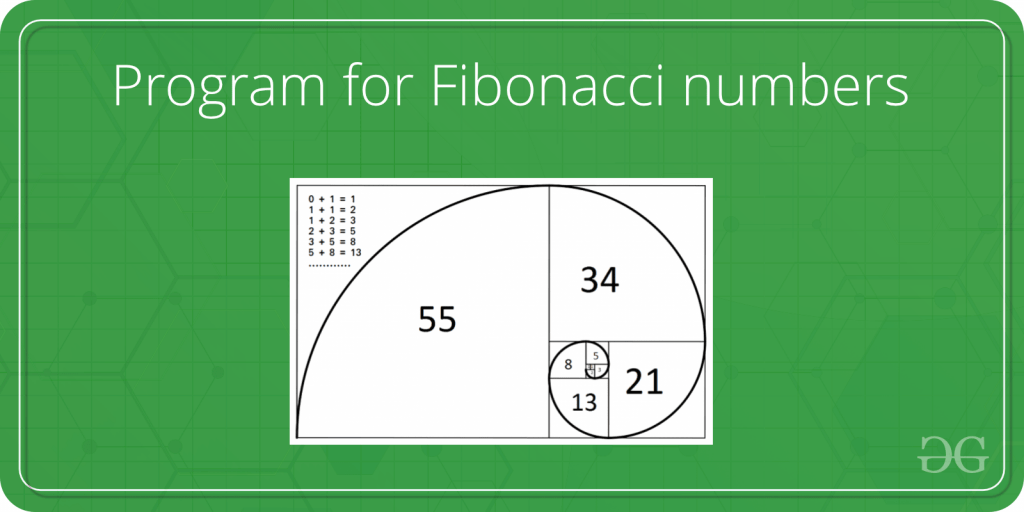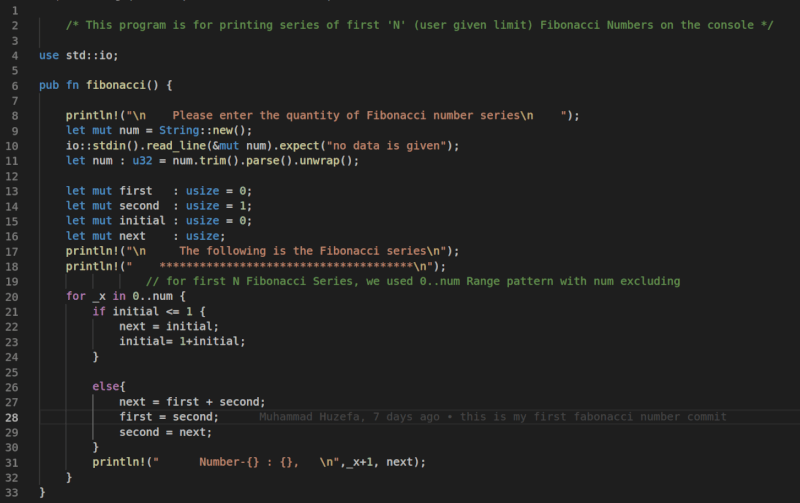2 unstable releases
| 0.2.0 | Nov 3, 2019 |
|---|---|
| 0.1.0 | Oct 31, 2019 |
#1510 in Algorithms
430KB
1. Fibonacci Sequence:
The Fibonacci Sequence is the series of numbers:
0, 1, 1, 2, 3, 5, 8, 13, 21, 34, ...
The next number is found by adding up the two numbers before it.
like
0 + 1 = 1 ,
1 + 1 = 2
and so on...
Want to learn more on fibonacci sequence
2. Imgaes:
below picture is the short story of Fibonacci Sequence

3. Graphical Interpretation:


The above two images are pictorial Interpretations of Fibonacci Series
4. Source Snapshot:
5. Code Block:
/* This program is for printing series of first 'N' (user given limit) Fibonacci Numbers on the console */
use std::io;
pub fn fibonacci() {
println!("\n Please enter the quantity of Fibonacci number series\n ");
let mut num = String::new();
io::stdin().read_line(&mut num).expect("no data is given");
let num : u32 = num.trim().parse().unwrap();
let mut first : usize = 0;
let mut second : usize = 1;
let mut initial : usize = 0;
let mut next : usize;
println!("\n The following is the Fibonacci series\n");
println!(" **************************************\n");
// for first N Fibonacci Series, we used 0..num Range pattern with num excluding
for _x in 0..num {
if initial <= 1 {
next = initial;
initial= 1+initial;
}
else{
next = first + second;
first = second;
second = next;
}
println!(" Number-{} : {}, \n",_x+1, next);
}
}
"There are two ways to write error-free programs; only the third one works."
~AlanPerils
